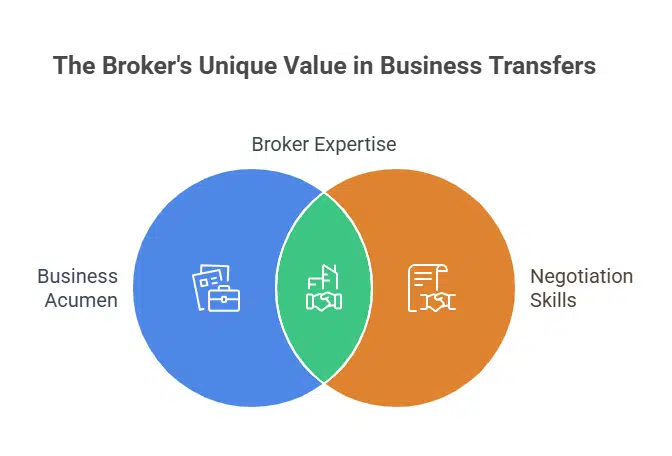In today’s evolving business landscape, changing ownership can be a complex and emotional process. Whether you’re looking to sell your business or invest in a new one, having the right guidance is key. That’s where business brokers come in. These professionals specialize in smoothing out the bumps along the way, especially in competitive markets like Seattle. This article explores how working with business brokers seattle can make all the difference during ownership transitions.
What Business Transitions Really Mean
Understanding the Shift
A business transition refers to any significant change in who owns or controls a company. This could be a sale, a merger, or even passing the company on to a family member. These shifts affect more than just finances—they often bring big changes to employees, operations, and long-term goals.
The Impact on Owners
For a seller, letting go of a business they’ve built can be both a relief and a challenge. Buyers, on the other hand, step into a new set of responsibilities. Getting through this smoothly means navigating legal, financial, and emotional terrain. That’s why many turn to business brokers for expert support.
The Value Business Brokers Bring
Accurate Valuation and Market Knowledge
Setting the right price is critical. Business brokers use their understanding of local markets and industry data to provide accurate valuations. This ensures the business is priced fairly, helping it sell faster and for the right amount.
Streamlining the Deal
Negotiations can be tricky. Business brokers serve as neutral third parties who help both sides find common ground. They handle paperwork, guide due diligence, and keep everything moving forward so clients avoid costly delays or legal pitfalls.
Protecting Confidentiality
Selling a business often requires discretion. Good brokers make sure sensitive details stay private, only sharing them with qualified buyers. With their network of contacts, business brokers seattle can connect sellers with the right prospects without drawing unwanted attention.
The Role of Business Brokers in Ownership Transfers
Business brokers offer a unique combination of business acumen, negotiation skills, and industry knowledge. They act as a bridge between buyers and sellers, helping both sides achieve their goals with fewer roadblocks.
1. Valuation and Market Positioning
Determining what a business is actually worth is one of the most critical early steps in any transition. Many business owners either overvalue their company due to emotional attachment or undervalue it because they don’t fully understand its market potential. Business brokers perform detailed valuations that consider tangible and intangible assets, current financials, future earning potential, and market conditions. With this information, they help sellers set a realistic and competitive price, one that attracts buyers without leaving money on the table.
2. Marketing and Buyer Screening
Business brokers know how to market a business discreetly and effectively. They ensure confidentiality is maintained while still reaching qualified prospects through private networks and targeted strategies. For sellers, this means only serious and financially capable buyers are brought to the table. For buyers, it means being matched with businesses that align with their goals and investment criteria.
3. Managing the Transaction
The negotiation and closing process can be overwhelming without the right support. Business brokers handle the back-and-forth communication, help draft key documents, guide due diligence, and coordinate with accountants and attorneys. This ensures the deal stays on track and reduces the risk of delays or failed transactions.
4. Protecting Confidentiality
Confidentiality is critical during a business sale. Prematurely disclosing that a business is for sale can cause panic among employees, customers, or competitors. Business brokers maintain discretion throughout the process and release sensitive information only to vetted, interested buyers under confidentiality agreements.
Why Work With a Broker?
Professional Guidance
Navigating a business sale or purchase isn’t something most people do often. Brokers provide clarity and strategy, helping their clients make smart decisions. Their experience often uncovers opportunities or risks that others might overlook.
More Options, Less Hassle
Because of their connections, brokers can bring more and better opportunities to the table. They pre-qualify leads so sellers don’t waste time on buyers who aren’t serious or financially ready.
Dealing With Challenges
Avoiding Common Pitfalls
Things like unclear financial records, operational mismatches, or legal snags can derail a deal. A skilled broker spots these issues early and works to resolve them before they become deal-breakers.
Managing the Transition Process
Brokers take care of the details: from contracts and compliance to coordinating the handover. Their job is to make the process as seamless and stress-free as possible for everyone involved.
Choosing the Right Broker
Know What You’re Looking For
Before hiring a broker, consider what kind of support you need. Is your business in a niche industry? Are you handling a large or small transaction? Choose someone with the right background and experience to match.
Check Credentials and Compatibility
It’s important to work with someone you trust. Look for a broker with a solid reputation and experience with businesses similar to yours. Equally important: choose someone you communicate well with—the right partnership can make the process a whole lot smoother.
Final Thoughts
Ownership changes don’t have to be overwhelming. With the expertise of business brokers seattle, the process of ownership change is streamlined and your interests are safeguarded, ensuring optimal outcomes. By leveraging their market insights and negotiation skills, you set the stage for a successful transition that aligns with your objectives.








































